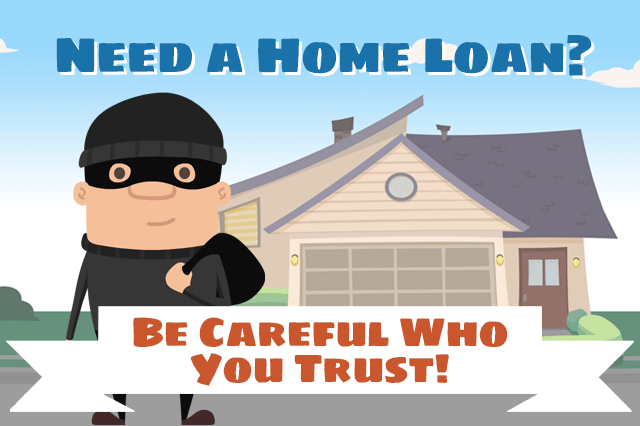FHA Scam Warning

The FHA and HUD are warning borrowers of a scam related to the landmark settlement between five major mortgage lenders and the U.S. government. In the early months of 2012, that settlement was reached after complaints were filed regarding home loan abuses and foreclosure abuses.
"The Justice Department, the Department of Housing and Urban Development (HUD) and 49 state attorneys general announced today the filing of their landmark $25 billion agreement with the nation's five largest mortgage servicers to address mortgage loan servicing and foreclosure abuses." That's according to an FHA/HUD press release issued in early 2012 on the FHA official site, which also adds;
"The federal government and state attorneys general filed in U.S. District Court in the District of Columbia proposed consent judgments with Bank of America Corporation, J.P. Morgan Chase & Co., Wells Fargo & Company, Citigroup Inc. and Ally Financial Inc., to resolve violations of state and federal law."
Now on the FHA official site, borrowers will find a video called "Homeowner Help" discussing this agreement. The programs starts with a question; "Are you a homeowner who's facing mortgage trouble?" It adds, "A government settlement with the nation's biggest mortgage services provides help and hope for many people fighting to save their homes from foreclosure."
Following this are instructions on how to get more information on the assistance available as a result of the settlement, but also a very important warning for all FHA, VA and conventional borrowers . The FHA urges borrowers NOT to pay for "assistance" or help under this settlement. Consider the warning found on NationalMortgageSettlement.com:
Scammers are already at work trying to capitalize on the national mortgage settlement to access your personal information-or worse, your money. The Attorneys General have already received reports of scammers in Alabama calling borrowers claiming to be one of the major banks involved in this settlement and offering a cash payment to consumers if they simply provide the routing number to access their bank account. If you receive an unsolicited call from one of the major banks, you can identify a scam in several ways:
1. Does the caller identify themselves as representing your mortgage servicer? Or do they ask you to provide the name of your mortgage servicer? If they ask you for the name of your servicer, they may be a scammer.
2. Does the caller offer to provide your personal information to assist you in identifying your account? Or do they ask you to provide that? If the caller is from your mortgage servicer, they will be able to tell YOU your personal information because they will have it. You should never provide your personal information (including bank account numbers, social security numbers, etc.) to an unsolicited caller-no matter what they promise you.
3. Does the caller offer to speed your settlement relief for a fee? They are definitely a scammer! Neither the banks nor the Attorneys General will charge a fee to speed your settlement.
4. If you think the caller may be legitimate, ask for their contact information, tell them you are going to call your bank's hotline (located above) and confirm, then call them back. Chances are if they're a scammer, they won't want you to check on them and they won't provide their contact information.
Remember, there is no legitimate charge to apply for assistance you may be entitled to as a result of the settlement. Be very wary of third parties contacting you to help for a fee. Instead of responding to such offers of "help", contact the FHA directly for advice. Learn more about the settlement referenced above and how it may affect you at the FHA/HUD official site.
------------------------------
RELATED VIDEOS:
Disclosures Give Transparency to Borrowers
Understanding the Purpose of Your Mortgage Down Payment
Putting Money Into Your Escrow Account

Do you know what's on your credit report?
Learn what your score means.







